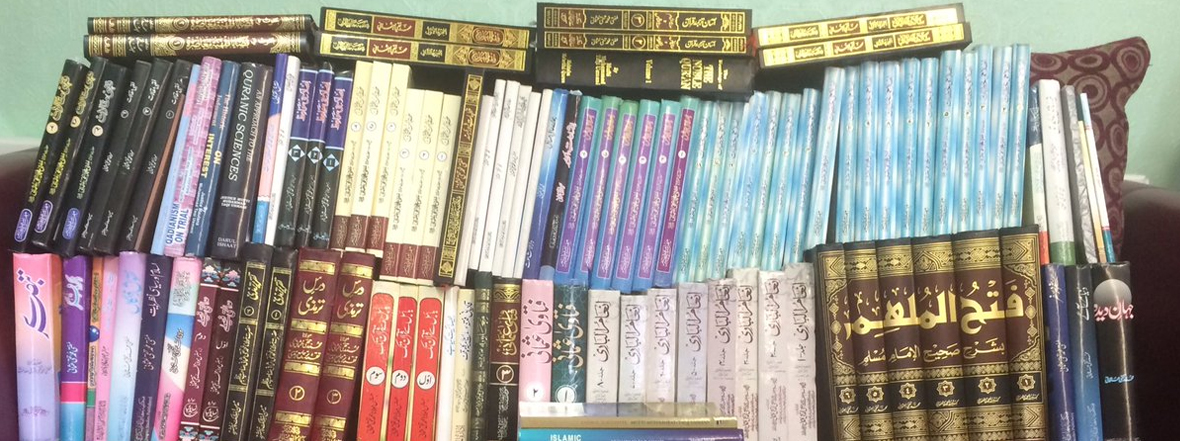Abū Zakariyyā Yaḥyā ibn Maʿīn ibn ʿAwn ibn Ziyād[1], commonly known as Yaḥyā ibn Maʿīn, or by his teknonym, Abū Zakariyyā, was born in the late 158 A.H during the caliphate of Jaʿfar al-Mansūr[2]. H passed away in the year 233 A.H on the night of Jumuʿah whilst on a journey from Madinah Munawwarah for Ḥajj.[3]
His teachers included; Ibn al-Mubārak, Ismāʿīl ibn ʿIyāsh, ‘Abād ibn ‘Abād, Sufyān ibn ʿUyainah, Gundur, Abū Muʿāwiyyah, Ḥātim ibn Ismāʿīl, Ḥafṣ ibn Giyāth, Jarīr ibn ʿAbdul-Ḥamīd, ‘Abd ur-Ruzzāq, Wakī’ and many others from Irāq, Ḥijāz, Jazīrah, Shām and Miṣr.[4]
From amongst his students were; Aḥmad bin Ḥanbal, Muḥammad bin Sʿad, Abū Khaithamah, al-Bukhārī, Muslim, Abū Dāwūd, ʿAbbās al-Dawrī, Abū Ḥātim, and many others.[5]
His zeal for knowledge was recognised through his endeavours. A notable example is that after the passing of his father he inherited 1,050,000 dirhams. He spent it all towards seeking ḥadīth to the extent that nothing remained to even purchase a pair of shoes.[6]
We also see the Imām’s zeal for seeking knowledge by the various journeys he made, such as: Basrah, Bagdād, Harān, Dimasq, al-Rasāfah, al-Ray, Sanʿā’, Kufā, Miṣr and Makkah al-Mukaramah.[7]
He had mastered many sciences, amongst which ʿIlm ur-Rijāl was one he was profound in, to such an extent where he was referred to as ‘Imām of Jarḥ wa Taʿdīl’[8]. Showcasing his merit as a master of the science of Rijāl, Khaṭīb al-Bagdādī quotes many of the contemporaries of Yaḥyā bin Maʿīn affirming his rank as an Imām of this science.[9]
His works were not limited to mere approbations and disapprobation of narrators albeit a science he was a master in, or narrating of aḥādīth[10], rather, he progressed forward as an author writing many books, many of which are not found today[11], despite him formally writing as an author at the age of twenty. [12] Of the books available today are; Ma’rifatul al-Rijāl[13], Tārīkh ʿUthmān bin Saʿīd al-Dārimī, Yaḥyā bin Maʿīn wa Kitābuhu ‘l-Tārīkh and a small treatise titled ‘Min Kalām Abī Zakariyyā Yaḥyā bin Maʿīn fi ‘l-Rijāl’.
Many other similar statements showcase that his contemporaries also acknowledged his vast knowledge regarding ʿIlm ul-Rijāl.
In summary, Yaḥyā bin Maʿīn was an extremely notable figure in the history of Islam, one who left a legacy of knowledge.
[1] Al-‘Asmā wal Lugāt, Vol. 2, pg. 156. Tahzīb Al-Kamāl fī Asmā’ al-Rijāl, Vol. 31, pg. 543.
[2] Tārīkh Bagdād, Vol 16, pg. 263. Siyar Aʿlām al-Nubalā’, Vol 11, pg. 72.
[3] Maʿrifa al-Rijāl, Vol 1, pg. 5. Tārikh Bagdād, Vol 16, pg. 264.
[4] Siyar Aʿlām al-Nubalā’, Vol 11, pg. 72. Al-Kamāl fī Asmā’ al-Rijāl, Vol. 31, pg. 544 – 546
[5] Tārīkh Bagdād, Vol 16, pg. 263. Siyar Aʿlām al-Nubalā’, Vol 11, pg. 72. Tahzīb Al-Kamāl fī Asmā’ al-Rijāl, Vol. 31, pg. 546
[6] Maʿrifa al-Rijāl, Vol 1, pg. 5. Tārīkh Bagdād, Vol 16, pg. 265
[7] Ibid, pg. 7 – 8.
[8] Lamaḥāt min Tārīkh al-Sunnah wa ‘Ulūm al-Ḥadīth, pg. 193
[9] Tārikh Bagdād, Vol 16, pg. 266
[10] Maʿrifa al-Rijāl, Vol 1, pg. 16
[11] Ibid, Vol 1, pg. 6
[12] Siyar Aʿlām al-Nubalā’, Vol 11, pg. 77
[13] Maʿrifa al-Rijāl, Vol 1, pg. 16
Written by Huzaifa Saleh





